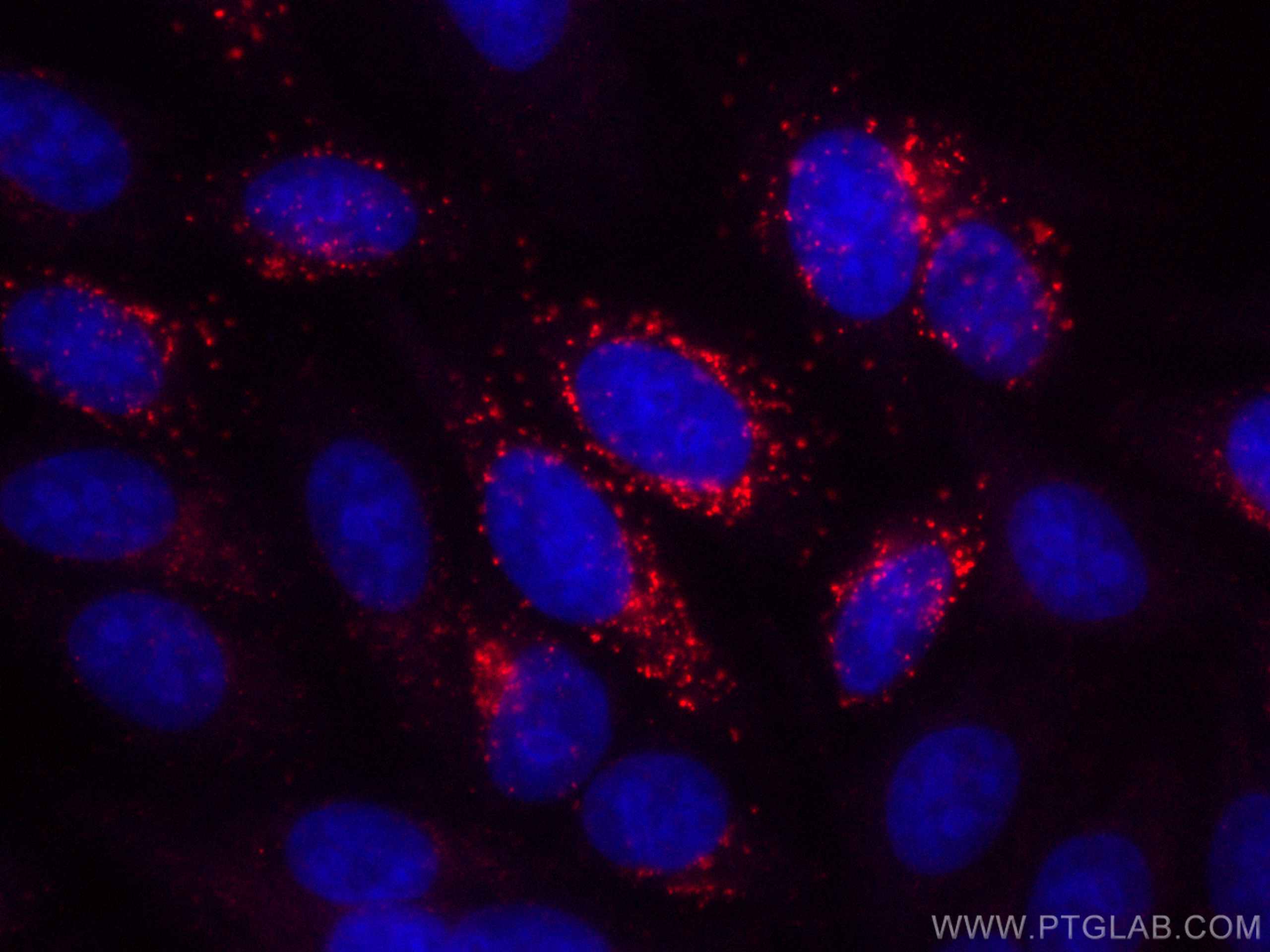Alpha 1B-Glycoprotein Monoklonaler Antikörper
Alpha 1B-Glycoprotein Monoklonal Antikörper für IF/ICC
Wirt / Isotyp
Maus / IgG1
Getestete Reaktivität
human
Anwendung
IF/ICC
Konjugation
CoraLite®594 Fluorescent Dye
CloneNo.
4D4E5
Kat-Nr. : CL594-66260
Synonyme
Geprüfte Anwendungen
| Erfolgreiche Detektion in IF/ICC | HepG2-Zellen |
Empfohlene Verdünnung
| Anwendung | Verdünnung |
|---|---|
| Immunfluoreszenz (IF)/ICC | IF/ICC : 1:50-1:500 |
| It is recommended that this reagent should be titrated in each testing system to obtain optimal results. | |
| Sample-dependent, check data in validation data gallery | |
Produktinformation
CL594-66260 bindet in IF/ICC Alpha 1B-Glycoprotein und zeigt Reaktivität mit human
| Getestete Reaktivität | human |
| Wirt / Isotyp | Maus / IgG1 |
| Klonalität | Monoklonal |
| Typ | Antikörper |
| Immunogen | Alpha 1B-Glycoprotein fusion protein Ag5414 |
| Vollständiger Name | alpha-1-B glycoprotein |
| Berechnetes Molekulargewicht | 54 kDa |
| Beobachtetes Molekulargewicht | 72 kDa |
| GenBank-Zugangsnummer | BC035719 |
| Gene symbol | A1BG |
| Gene ID (NCBI) | 1 |
| Konjugation | CoraLite®594 Fluorescent Dye |
| Excitation/Emission maxima wavelengths | 588 nm / 604 nm |
| Form | Liquid |
| Reinigungsmethode | Protein-G-Reinigung |
| Lagerungspuffer | PBS with 50% glycerol, 0.05% Proclin300, 0.5% BSA |
| Lagerungsbedingungen | Bei -20°C lagern. Vor Licht schützen. Nach dem Versand ein Jahr stabil. Aliquotieren ist bei -20oC Lagerung nicht notwendig. 20ul Größen enthalten 0,1% BSA. |
Hintergrundinformationen
Alpha-1B-glycoprotein (A1BG) is a plasma protein and is a member of the immunoglobulin superfamily. A1BG contains 474 amino acids and has 5 intrachain disulfide bonds. It has been reported that cysteine-rich secretory protein 3 (CRISP-3) is a specific and high-affinity ligand of A1BG. A1BG-CRISP-3 complex displays a similar function in protecting the circulation from a potentially harmful effect of free CRISP3 (PMID: 15461460).
Protokolle
| PRODUKTSPEZIFISCHE PROTOKOLLE | |
|---|---|
| IF protocol for CL594 Alpha 1B-Glycoprotein antibody CL594-66260 | Protokoll herunterladen |
| STANDARD-PROTOKOLLE | |
|---|---|
| Klicken Sie hier, um unsere Standardprotokolle anzuzeigen |


